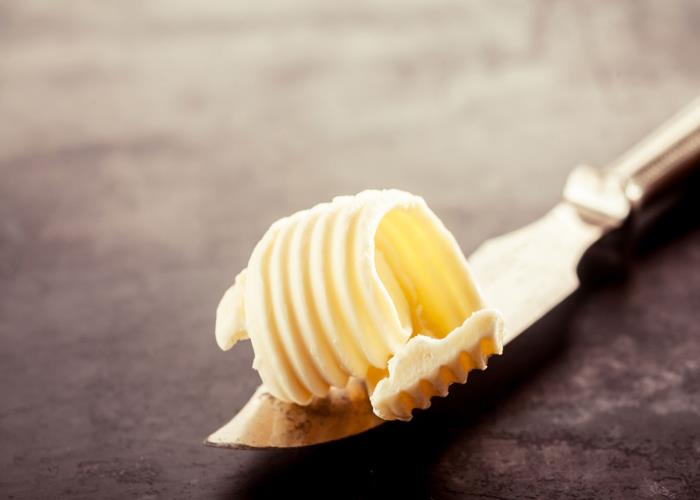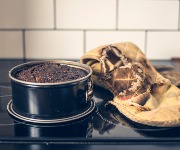Butter may not be bad for us after all

New research questions dietary guidelines introduced over 30 years ago.
“To date, no analysis of the evidence base” has been produced on the national dietary guidelines in the US and UK that were introduced in 1977 and 1983 respectively, says recently published research. And that means the guidelines should never have been introduced, as the information available at the time pointed against the recommendations.
Which means that we might be wise to ditch our low-fat spreads and return to the world of butter, and think twice before grabbing skimmed milk over full-fat.
Dietary advice
The guidelines that were introduced in 1983 in the UK recommended cutting overall dietary fat consumption to 30% of total energy intake, and saturated fat to just 10% of total intake – figures that echoed the US guidelines of 1977.
While each set of guidelines acknowledged that the evidence behind them was 'not conclusive', they were still introduced. In fact, no randomised controlled trial had directly tested the efficacy of the recommendations.
Research limitations
The new research, published in online journal Open Heart, looked back across studies that were available to the authorities at the time of the guidelines’ implementation, and found six trials on diet spanning an average of five years, and involving 2,467 men.
They found that the data revealed a total of 740 deaths from all causes, with 423 from coronary heart disease.
To draw a clearer picture of the lack of evidence for the recommendations, the researchers point out that five out of the six studies did not even consider a 30% overall and 10% saturated fat diet, but one of these five looked at a diet of around 20% fat.
The sixth trial looked at the implications of a 10% saturated fat diet, but the findings actually showed that people eating such a diet, with a reduced intake of saturated fats, had a higher all-cause mortality rate. They also had a higher rate of deaths from coronary heart disease too, despite the reduction of coronary heart disease being a key outcome of the Government diet recommendations.
The researchers slammed the guidelines on the basis that it seems “incomprehensible” that the advice was given, despite the “contrary results from [research on] a small number of unhealthy men.” Not a single woman was included in a study relevant enough to make the cut, restricting the findings further in terms of gender.
The results simply don’t support the guidelines, the researchers say, pointing out that the introduction of dietary fat recommendations weren’t successful in reducing coronary heart disease or related mortality.
And although fat consumption is commonly linked to weight gain, two studies noticed no significant difference in the weight of participants in the control and intervention groups, while another two found that the intervention groups actually lost more weight on average than the control group. Weight was not recorded in the final two studies.
Balancing your diet
Although the study suggests that the levels of overall and saturated fat in our diets may need a rethink that is backed up with scientific evidence, any changes shouldn’t come at the cost of eating less fruit and vegetables. Neither should it place significant focus on eating fat, although you might consider replacing your butter substitute with the real thing.
Rahul Bahl, of the Royal Berkshire NHS Foundation Trust, wrote in the same journal: "There is certainly a strong argument that an overreliance in public health on saturated fat as the main dietary villain for cardiovascular disease has distracted from the risks posed by other nutrients, such as carbohydrates. Yet replacing one caricature with another does not feel like a solution."
But we’ll have to wait for more research looking specifically into the recommendations and analysing that diet’s benefits before a sound judgement on fat consumption can be made.
What do you think of the research? Have you substituted your milk and butter for lower-fat alternatives? Let us know in the Comments below.
You might also like:
Bread and butter pudding recipe
Most Recent
Comments
Be the first to comment
Do you want to comment on this article? You need to be signed in for this feature








